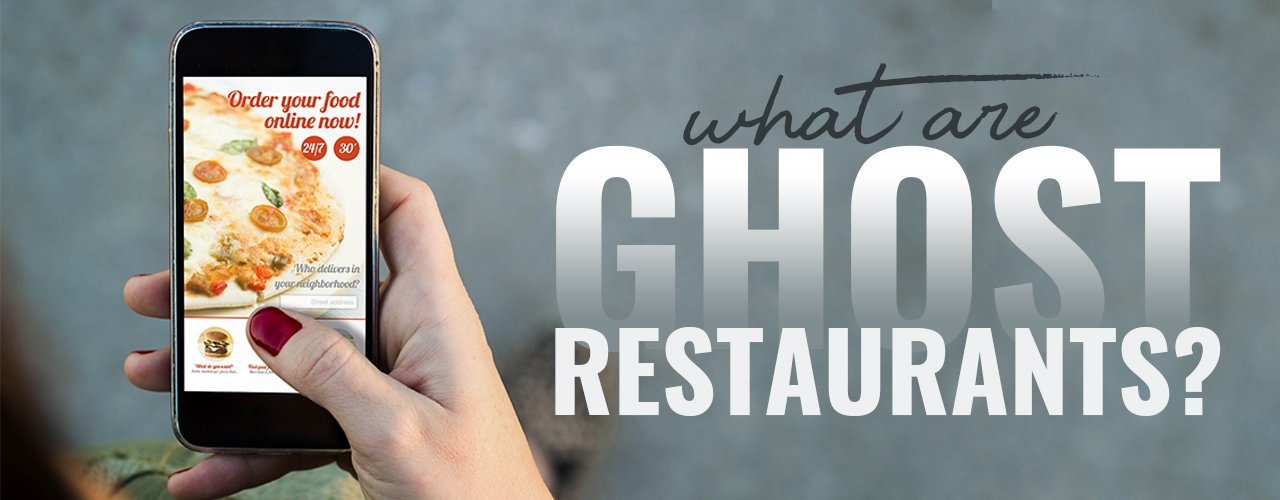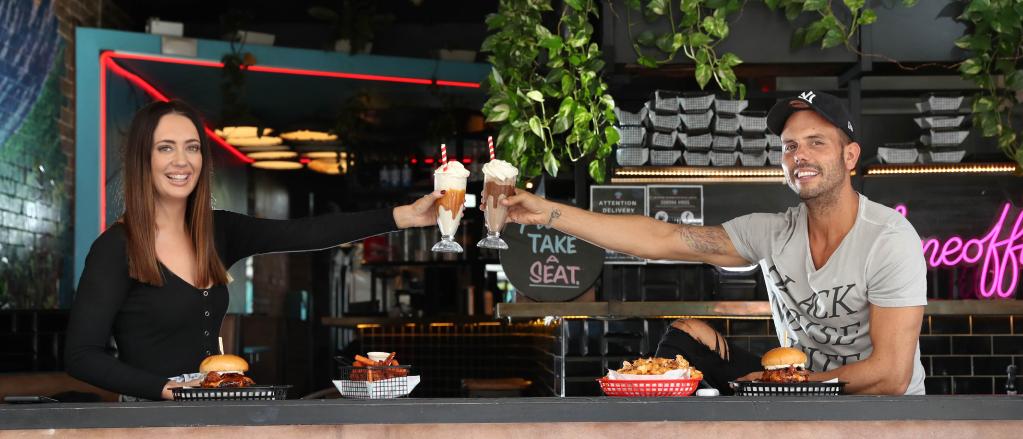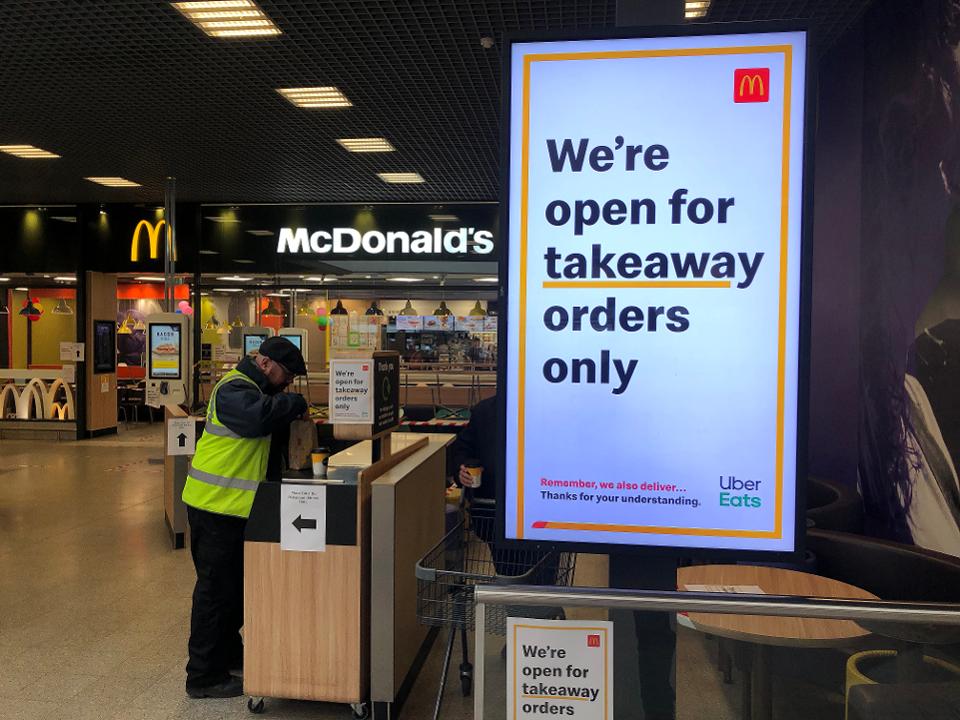Tech-enabled Ghost Kitchens see Sharp Rise in Investment Amid COVID-19 Crisis
Why are so many more businesses shifting to adopt a tech-centric ghost kitchen business model?

Contents
- What is a Ghost Kitchen
- Why are More F&B Businesses Switching to a Ghost Kitchen Business Model
- Benefits of the Ghost Kitchen Model
- 1. Save Money
- 2. Reduced Contact Between Staff and Customers
- 3. Decreased Wait Times for Customers
- 5. Low Barrier to Entry
- Big Investors and National Chains Investing Heavily in Ghost Kitchen Model
- Ghost Kitchens can help Keep F&B Businesses Running During COVID-19
What is a Ghost Kitchen?
Ghost kitchens (or ghost restaurants) can be defined as "delivery-centric commercial facilities that operate without a brick-and-mortar location." To put this more simply, they are F&B businesses that forego the entire front of house aspect of restaurant operations and simply run a kitchen, from which they receive orders and send them out for delivery. This new type of business relies heavily on technology to connect with customers and keep orders flowing smoothly.
A powerful POS system is essential to keep track of incoming orders and finances, while a Kitchen Display System helps tremendously to ensure chefs are always on top of orders. User apps and web ordering are also of paramount importance so that customers can place orders directly from their mobile phones and computers as there is no traditional storefront where customers can order from.

Why are More F&B Businesses Switching to a Ghost Kitchen Business Model?
Though the trend of the ghost kitchen model was gaining traction even before the outbreak of Coronavirus, there has definitely been a sharp upturn since. One of the main reasons is because the "limits on in-store dining related to the coronavirus (COVID-19) outbreak are putting new pressures on restaurants' off-premise capabilities, accelerating an already growing focus on takeout and delivery."
Considering that there is no storefront associated with ghost kitchens, it is a far more viable way to serve customers while strict social distancing measures are in place. Many people simply don't want to take the risk of eating out at restaurants, which is why operating from a kitchen is a great way to minimize contact between customers and staff. Shifting to a delivery-focused ghost kitchenf model uses technology to bridge the gap between customer and restaurant while mitigating the risk of contact brought about by the Coronavirus.

Benefits of the Ghost Kitchen Model
Though some of the merits of operating a ghost kitchen have already briefly been touched on, here are five solid reasons why it might be worth it for F&B businesses to consider this new business model during the COVID-19 pandemic.
1. Save Money
Given that many businesses are seeing sales and revenue drop drastically, the cost savings afforded by running a ghost kitchen would certainly be enticing. Not only do ghost kitchen businesses require less staff due to the lack of a storefront, but they also require far less capital and rented space to operate efficiently.
2. Reduced Contact Between Staff and Customers
Operating directly out of a kitchen and focusing on delivery reduces the contact that staff and customers have with one another. This will allow F&B business to continue running despite the Coronavirus outbreak. In fact, many markets are actually seeing an increase in sales by switching from table service to delivery business models.
3. Decreased Wait Times for Customers
Instead of customers having to travel to your restaurant, wait to be seated, place their order and then wait for it to be prepared, they can simply order from the comfort of their own homes through an app. Their food will then be delivered right to them, reducing the overall time it would take to get their meals.
4. All the Relevant Technology Already Exists
For some, the concept of a ghost kitchen still might seem a little out there. However, all the necessary technology already exists and is quite simple to implement. A modern POS system, integration with a delivery-based User App and solid kitchen management technology is all you need to replace the traditional dining experience.
5. Low Barrier to Entry
Entering a new business segment often incurs high barriers to entry. However, where ghost kitchen are concerned, the barrier to entry is relatively lower and less-risky. Even if your business just runs a kitchen, working with third-party delivery companies can offer great rewards. There are even some delivery companies that are waiving fees so that their restaurant partners can serve customers at a lower cost to themselves during the COVID-19 pandemic.

Big Investors and National Chains Investing Heavily in Ghost Kitchen Model
As of late, many more ghost kitchens have been seeing an influx of investment. In the US, "total investments in ghost kitchen developers reached $1.9 billion in 2019, up from approximately $500 million in 2018." This represents a near-400% increase in investments in just a year. Other high-profile investments within the US include "Kitchen United's $40 million Series B round, led by GV, the venture arm of Google parent Alphabet Inc., and San Francisco-based Virtual Kitchens' $15 million Series A round. In March 2019, REEF Technology secured $900 million in the largest deal to date for a ghost kitchen developer."
In addition, large fast food chains have also begun to spot the potential in ghost kitchens and are beginning to invest in their own test phases. "The Wendy's Co. began experimenting with delivery-centric kitchens last year. It plans to use the model in high delivery areas and regions where it lacks a brick-and-mortar presence, said Abigail Pringle, international president and chief development officer at Wendy's."
Other large-scale enterprises that are experimenting with the ghost kitchen model include "Chick-fil-A, Sweetgreen and The Halal Guys." McDonald's is also trying its hand at the ghost kitchen concept in the UK where it "launched its first delivery-only kitchen in London late last year." This trend isn't just limited to fast food chains. Large restaurant chains are also testing whether ghost kitchens are right for them. "Inspire Brands, which owns Arby's, Buffalo Wild Wings, Sonic and Jimmy John's, is experimenting with standalone kitchens, along with Bloomin' Brands, parent company of Outback Steakhouse."

Ghost Kitchens can help Keep F&B Businesses Running During COVID-19
There are real numbers to back the success that companies trying out the ghost kitchen model have had during these last few testing months. "Chick-fil-A has seen an increase in orders at its three test ghost kitchens in Chicago; Hollywood and Redwood City, Calif., as a result of restrictions on dine-in services." Indeed, the Coronavirus might actually " be a catalyst for further penetration, with ghost kitchens emerging as a major focus for restaurants in the second half of 2020 and beyond."